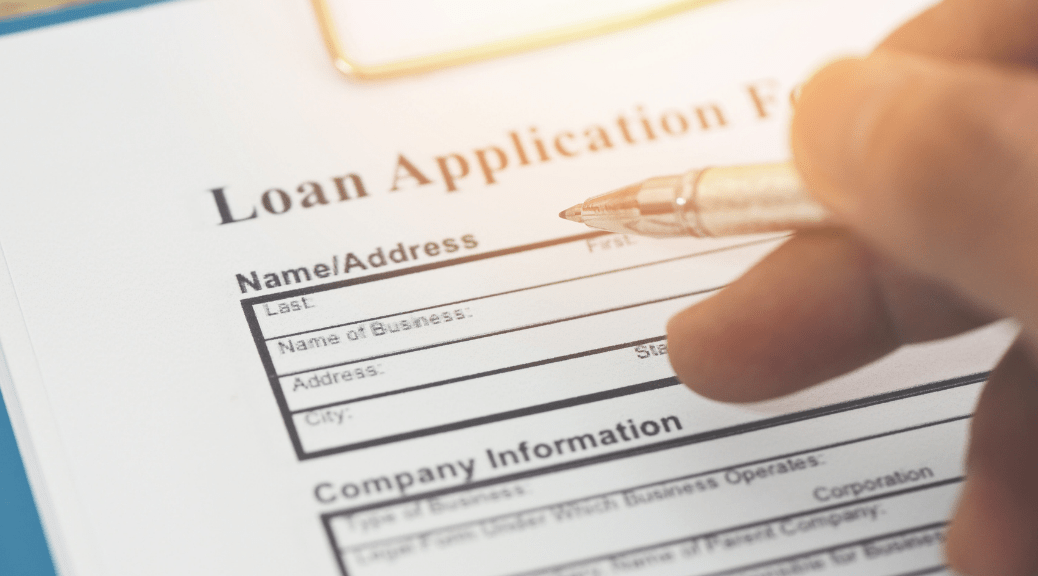Tips of availing a car loan

It is everyone’s dream to have a branded car along with the house. Car not only makes your life comfortable, but also reduces many difficulties. Coming to the office while battling public transit support or going out for a weekend getaway makes everything a lot easier. Earlier, buying a car was a big deal for anyone, because one had to spend a lump sum amount for it, but now it has become very easy due to the easy availability of loan. Banks and Non-Banking Finance Companies offer car loans on easy monthly installments, making it very easy to buy a car now. This does not spoil your budget and also provides convenience. Let us know here the best ways of availing a car loan.
Subas Tiwari
Car loan companies offer loans on both new and used cars. However, the interest rates on these two are different. The interest rates for new cars range between 7.50 -13.75 per cent, while for used cars the interest rates range between 12.50 and 17.50 per cent.
Who can take a car loan?
Before applying for a car loan, there are a few conditions, which you need to take care of. This includes information about age, minimum salary, type of job and residence.
Documents required for car loan
- Proof of Identity (PAN Card, Passport, Driving License etc.)
- Proof of Address like Voter I Card, Passport
- Age Proof
- Photograph
- Car Documents
- Proof of income like three months’ salary slips, six months bank statement, income tax return
- Some companies do not finalise the loan without a copy of the car insurance and driving license.
Hypothecation
When you buy a car by taking a loan, it is mortgaged with the lending company. This gives them the right to confiscate your property in case they are unable to repay your loan. If you are not able to pay the monthly installment on time, they can pick up the car and take it away. Hypothecation letter is also a part of the car registration process. Once you repay the loan, you can remove the hypothecation of the lending company from the registration papers. To remove the hypothecation, you will have to go to the respective RTO office with no objection certificate, car insurance papers and address proof. It is important to note here that it is necessary to take NOC from the company giving the loan. After this, give it to the insurance company and issue the insurance paper in the name of the new owner.
Car loan amount
The loan amount depends on your age and income. How much loan you get for the car depends on the lending company. At this time, usually you get a car loan up to four to six times your annual income. Up to 80-90 per cent of the cost of the car gets financed. Some banks, however, finance up to 100 per cent. It can be ex-showroom price or on road price. Ex-showroom price is the amount paid to a dealer for buying a car. When you bring the car for driving on the road after paying registration charges, insurance, road tax etc. then it is the on-road price. When you go to take a loan for a second-hand car, then the expenses incurred in re-registration are not covered.
Interest rates on car loan
Lending companies charge some extra amount in addition to Marginal Cost of Funds (MCLR) on the amount of car loan. Usually, these rates are fixed. This makes it easier to repay the loan. If you think that the interest rates may come down in future, then you can take interest on floating rate. At present the interest rates are between 7.50- 13.75 per cent. However, some lending companies also give interest rate rebate to women. Taking a second-hand car loan instead of taking a new car is an expensive deal. Most of the banks charge more interest on this.
What are the expenses in a car loan?
Banks levy many charges for offering loan or repaying the loan ahead of time.
- Processing fee is charged when you apply.
- This can be 0.4-1 per cent of the loan amount.
- Banks charge fees for premature repayment of the loan.
- Some banks charge five to six per cent on this.
However, some banks do not charge for this. Some banks offer part payment facility to repay the car loan. This means you can repay a part of the loan whenever you have the money. Some banks also charge a fee on payment. You cannot prepay the loan within six months of taking the loan.
Repayment
Car loans are generally given for one to seven years. You can pay it ahead of time as per your convenience.
Loan tips for the aam naagrik
For a hassle-free car loan experience, you can follow the tips below.
- Always approach your neighborhood banker. If this does not work out favourably, approach your employer-bank or the bank where your salary is credited. You will be able to click on any one of them for sure.
- Always prefer rate of interest with floating rate as compared to fixed rate which some of the banks want to offer. A floating rate would come down by a few notches if the economy performs well and you could be one of the beneficiaries of a robust growth!
- Be on the look-out for a ‘loan mela’ or ‘loan campaign’ in your residential/commercial area. During this period, bankers tend to be ‘aggressive’ in sanctioning the loan with least of delay (as it suits their targets!). Further, during this canvassing, processing charges are either minimal or could be totally waived. You could be in for another surprise: a small discount in rate of interest!
- Banks tend to ‘push’ their third-party products along with a bank car loan. So, resist all pressure, saying that such products need not necessarily perform well!
- While completing documentation of the bank, kindly insist on the bank to provide you a Xerox copy of the main ‘agreement’ along with a copy of the bank’s sanction.
- While submitting a loan application to the bank, always super scribe on the loan application form on the purpose of the loan sought for, to thwart any later attempts by any shrewd bank employee from misusing your application for other purposes (for issue of credit card, mutual funds, insurance, etc).
- Never put your signature on blank bank documents. Read the documents well before affixing your signature.
Keep in mind
- Most banks finance medium cars, SUVs and MUVs. However, before applying for the loan, you should check how much loan the bank is offering for which car.
- If the car is purchased in the name of any person, then no deduction on depreciation of income tax can be claimed for that. There is no tax benefit on car loan.
- At the time of taking the loan, you should calculate the interest to be paid on the car loan.
Conclusion
Applying for a car loan is easy because of the lesser documentation requirements. Here you do not even need to mortgage anything separately. The loan is secured with a car. However, you should keep your budget in mind while buying a car.
Points you should remember before buying a Car
- Fix your budget- The first and foremost step while planning for a car purchase is determining how much you can spend. While you might have your eyes on a particular car, you cannot take it home unless your pocket allows it. According to a thumb rule, the total expenditure on all the cars including expenses on fuel, insurance premiums, maintenance costs, and more, within a household should be 25% of the total monthly income. Therefore, you will have to fix a budget that does not hamper your bills payment, savings, and other regular expenses.
- Choose between new and pre-owned car- Once you have fixed your budget, it is important that you decide whether you want to buy a new car or a pre-owned one. You can weigh all the pros and cons of buying either of the types of cars and priorities based on your requirement. Then, you can assess if the chosen type of car fits your budget by the calculating the ownership cost of the car.
- Decide the kind of car you want- You should choose a car that best serves your requirement, circumstances, lifestyle, and taste. Make a list of the features and specifications of the car that you want such as seating, comfort, convenience, performance, and safety features. You will also have to decide whether you want to opt for a car with diesel or petrol engine. Based on your budget as well as your preference of old or new car, you will have to narrow it down to a few car makes and models. Next, you can make a list of additional features that you would like to have in your car such as a sunroof, surround sound systems, heated seats, etc.
- Check the resale value of the car- In terms of resale value, some cars might have the upper hand over others due to a powerful engine, better fuel efficiency, and popularity of the manufacturing brand. Furthermore, since car maintenance is one of biggest concerns for buyers, cars which have more service centers and better spare parts availability usually have greater resale values. When you are looking to buy a car, you should check its resale value in case you have to sell it during a financial crisis or just want an upgrade in subsequent time.
- Secure your finances beforehand- One of the biggest mistake that one can make is not looking into financing options before visiting a car dealership. While most of the dealerships provide financing options for their customers to help purchase the car they want or like, the interest rates offered during such circumstances are usually higher than the rates available in the market otherwise. You can check the current interest rates being offered by banks and other non-banking financing companies (NBFCs) in addition to any ongoing offers online.
- Look for options- Checking the prices from a number of different dealers is a smart move. When you are planning to buy a car, walking out of at least one dealership will help you learn about the lowest cost of a particular car that they can offer. This information comes handy when you go to another dealership and try to negotiate the price. Additionally, it is also wise to check the prices at a few dealerships out of town since dealership prices vary depending on the location as well.
- Learn about the car through a test drive- Even though you might have researched about the car and its features on the internet, you should take your time with the test drive. Ensure that you like the feel of the car while driving and otherwise. Even when the car is parked, you can experiment with the controls to check whether you and the passengers will be comfortable in it or not. Do not hesitate to ask for additional time to understand if you really like the car. In addition to comfort and features, you should also check the driving convenience, handling, brakes, etc. The car should also offer a quiet and smooth ride.
- Negotiate the prices and terms- Cars are the second greatest assets of an individual, after his or her property holdings. Therefore, you should negotiate the terms and prices as much as possible to get the best deal before you make the investment. Negotiating the price of the car will help you bring the car loan down and can save you money in the long run. You can practice your negotiating skills beforehand and do not feel bad to walk away from any offer. Remember that confidence is the key during such a negotiation.
- Focus on the total price instead of monthly payments- Trying to trick potential buyers into an expensive deal is second nature to salesmen. Do not be tempted to say yes to a low-cost deal with a long tenure since they might end up costing you more eventually. Also, make sure you learn about the total price of the car including all the hidden costs such as dealership costs, delivery charges, taxes, car preparation, and more. Dealerships often don’t often tell the customers about these additional charges unless the buyer enquires about them.
- Factor the car insurance premiums in the total cost- Insurance costs have a huge impact on the total price of the car, therefore it is important that you consider it along with the car’s price during a purchase. While sports cars usually have more expensive insurance premiums than other cars, there are a number of cars which have a high premium amount due to separate reasons. For example, Honda Civic, Toyota Camry, and Honda Accord have a high resale value and, hence, are more prone to theft. Therefore, they might have a higher insurance cost compared to the other cars in the same segment.
- Avoid purchasing any add-on- Since salesmen earn commissions based on a percentage of the sales price, they might try to rope you into purchasing add-ons to increase the cost of the car. Try to keep the additional costs to a minimum by avoiding add-ons such as heated seats, rust proofing, rear camera, VIN etching, and dealership maintenance plan. You can also buy a GPS unit at a much cheaper price online, instead of buying the expensive built-in system.
- Do not buy an extended warranty along with your car- The extended warranties offered by dealers are often expensive and provide minimum coverage. Be it a new or used car, such warranties also do not usually cover mechanical failures. If you are purchasing a new car, make sure that it has a manufacturer’s warranty to cover most of the damage costs. In case of a pre-owned car, you can check whether it still has an active manufacturer’s warranty. If not, you can save that money instead for potential repair and maintenance expenses.
- Get the pre-owned car checked by a mechanic before purchase- In case you are planning to buy a used car, it is wise to get it thoroughly checked by an expert technician before the purchase is finalized. By doing this, you can not only become aware of the condition of the car, but can also learn about any existing or potential concern as well. According to this report, you can decide whether you want to buy the car or the mechanical issues are too severe. This can also act as leverage while negotiating the price of the car.
- Do not make an impulse buy- Being a huge investment, it is advisable that you do not buy a car just out of impulse. Purchase a car only after performing extensive research on the market so that you don’t regret your decision later. If you check all the financing options available as well as the car makes and models in the market, you will be able to buy a car that you can enjoy for many years, without becoming a burden on you.
- Purchase a car while maintaining finances- Buying a car when you are repaying other debts can be a herculean task. If you are already paying off a car loan, the additional loan might impact your monthly income and savings. Therefore, purchasing a car only after the previous car loan is paid off is a better option than buying one while repaying an existing loan. By doing this, you will be able to avoid an upside-down car loan.
Since purchasing a car is a huge investment, you should perform thorough research to find the best interest rates as well as car make and model in the market to suit your needs and repayment capability. That way you can be well-prepared to negotiate and get the best deal possible on the new or used car of your choice. There are a number of aspects of a car that you should bear in mind to be able to choose the right one as per needs, such as fuel efficiency, type of fuel, availability of maintenance services and spare parts, etc.
Related
Decoding Cyber Coverage in India: Your Ultimate Guide
In today's technology-driven landscape where digitalization is ubiquitous, companies confront an escalating threat landscape in the form of...
Navigating Insurance Options: Comprehensive Coverage for Diabetics in India
As the prevalence of diabetes continues to rise steadily in India, individuals grappling with this chronic condition encounter myriad challenges,...
Understanding International Travel Insurance
International travel insurance serves as a financial product crafted to shield travellers from unforeseen events and expenses while journeying...


